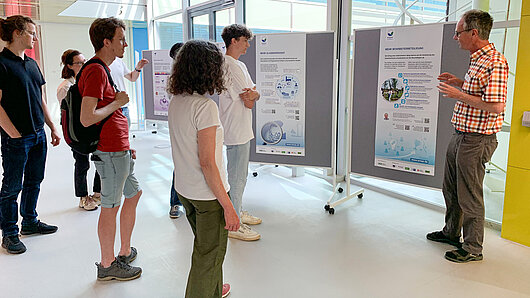High-Performance Computing Center Stuttgart

As representatives of HLRS explained at the event, the basis for these efforts is its environmental and energy management systems, which are certified under the Eco-Management and Audit Scheme, the world’s most stringent standard for environmental management. HLRS is currently the only EMAS certified high-performance computing center. In addition, HLRS is active in research projects that are investigating strategies for saving energy in its system operations. This includes developing plans to reuse the heat that its computers generate to warm other buildings on the University of Stuttgart campus. Visitors could also learn about the many ways in which high-performance computing (HPC) supports the development of more sustainable technologies like wind and water power generation, and how digital twins can support sustainable city planning.
In a lecture titled “How Energy Efficient Software Can Support Sustainable Digitalization,” HLRS research scientist Björn Dick explained the substantial effects of software development on energy usage in HPC systems. His talk also offered strategies for developing programs that consume less energy during their usage.
— Christopher Williams